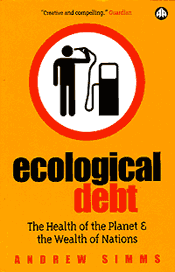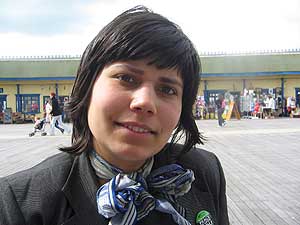On Assassinating Bliar
This week's most hilarious and yet troubling (for the accusation of 'treason') story was that of Gorgeous George saying that Bliar's death by violence could be deemed morally justifiable. Here is the story as reported in The Times:
Killing Blair 'morally justified' says Galloway
http://www.timesonline.co.uk/article/0,,17129-2198530,00.html, May 26th
THE assassination of Tony Blair by a suicide bomber would be morally justified as revenge for the War in Iraq, according to George Galloway.
The Respect MP for Bethnal Green and Bow said that such an attack would be "morally equivalent to ordering the deaths of thousands of innocent people in Iraq — as Mr Blair did". He was speaking during an interview for GQ magazine with Piers Morgan, the former Daily Mirror Editor. Morgan asked: "Would the assassination of, say, Tony Blair by a suicide bomber, if there were no other casualties, be justified as revenge for the war on Iraq?"
The MP for Bethnal Green and Bow said: "I am not calling for it but if it happened it would be of a wholly different moral order to the events of 7/7."
Mr Galloway is in Cuba and could not be contacted last night. A spokesman for Respect said: "What he’s saying is were something like that to happen it has to be viewed through the moral lens of occupation and resistance to occupation."
I just stumbled on a nice relevant quote in Ed Abbey's Down The River.
The context is the Reaganite MX missile shell-game plans, from the Eighties. After a passage on how MAD ensured global suicide ("I am happy to report that it will probably do its job, and if ours doesn’t theirs will"), and on how the American milit-industrial complex needs such programmes like a vampire needs blood, Abbey says this:
"William Faulkner once wrote a story called 'Turnabout'. The hero of the story is a World War I combat pilot in the Royal Air Force; he sees many good men die, and near the close of the tale his best friend, a gunboat commander, is also killed. Faulkner's character takes these deaths badly, becoming bitter. The story ends with the hero about to bomb and strafe a chateau in France where some German generals are billeted. As he dives his flying crate toward the building the pilot thinks, 'If only they all were there. all the generals, all the admirals, theirs, ours, all of them...' A turnabout. Good idea, I'm thinking. If we must have one more war let it be a simple and direct encounter between Kremlin and Pentagon, one deft surgical strike removing simultaneously two malignancies from the human body politic.
"Mankind will not be free until the last general is strangled with the entrails of the last systems-analyst. As my sainted grand-mother used to say."
Shame he leaves out the traditional 'last priest' I think, but we get the point of the modernised update. As a Cold War metaphor, it has dated again, but, widening the sentiment to include Bliarite UK politicians, as Galloway does, seems appropriate enough, and I can think of over 100,000 Iraqis, who, if able to speak from the grave, might agree (see http://iraqmortality.org, and my interview with Maya, here and on BlueGreenEarth).
Is it treason? Perhaps. If so, vivre la haute trahison...
As we shuffle Bliar off to join Thatch and Galtieri and ... in the good ol Fletcher Memorial Home (hey, cheers, Rog! - Final Cut)... let us all think the same as that pilot, and strafe the fuckers, one and all, with Galloway rear-gunner (jerk-off SWP scum though he may be)...
;-)
Tim






